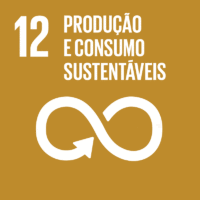Ciência_Iscte
Publicações
Descrição Detalhada da Publicação
Complements or substitutes? Private codes, state regulation and the enforcement of labour standards in global supply chains
Título Revista
British Journal of Industrial Relations
Ano (publicação definitiva)
2013
Língua
Inglês
País
Reino Unido
Mais Informação
Web of Science®
Scopus
Google Scholar
Esta publicação não está indexada no Google Scholar
Abstract/Resumo
Recent research on regulation and governance suggests that a mixture of public and private interventions is necessary to improve working conditions and environmental standards within global supply chains. Yet less attention has been directed to how these different forms of regulation interact in practice. The form of these interactions is investigated through a contextualized comparison of suppliers producing for Hewlett‐Packard, one of the world's leading global electronics firms. Using a unique dataset describing Hewlett‐Packard's supplier audits over time, coupled with qualitative fieldwork at a matched pair of suppliers in Mexico and the Czech Republic, this study shows how private and public regulation can interact in different ways — sometimes as complements; other times as substitutes — depending upon both the national contexts and the specific issues being addressed. Results from our analysis show that private interventions do not exist within a vacuum, but rather these efforts to enforce labour and environmental standards are affected by state and non‐governmental actors.
Agradecimentos/Acknowledgements
--
Palavras-chave
Classificação Fields of Science and Technology
- Economia e Gestão - Ciências Sociais
Contribuições para os Objetivos do Desenvolvimento Sustentável das Nações Unidas
Com o objetivo de aumentar a investigação direcionada para o cumprimento dos Objetivos do Desenvolvimento Sustentável para 2030 das Nações Unidas, é disponibilizada no Ciência_Iscte a possibilidade de associação, quando aplicável, dos artigos científicos aos Objetivos do Desenvolvimento Sustentável. Estes são os Objetivos do Desenvolvimento Sustentável identificados pelo(s) autor(es) para esta publicação. Para uma informação detalhada dos Objetivos do Desenvolvimento Sustentável, clique aqui.

 English
English



